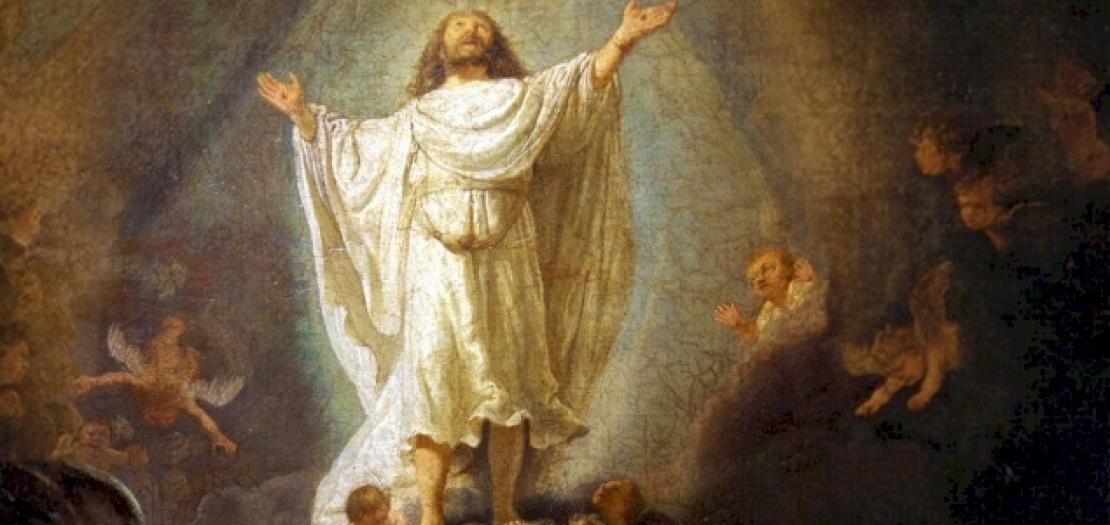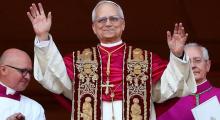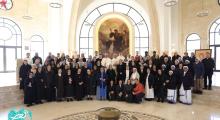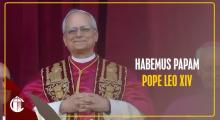Issued by the Catholic Center for Studies and Media - Jordan. Editor-in-chief Fr. Rif'at Bader - موقع أبونا abouna.org

Following is the text of the meditation by Latin Patriarch of Jerusalem His Beatitude Pierbattista Pizzaballa for the Ascension of the Lord, Year A, May 18, 2023:
The evangelist Matthew does not record the account of the Ascension of the Risen Lord and concludes his Gospel account with the verses that we heard today. Rather than highlighting the departure of Jesus, Matthew, on the contrary, underlines His permanent presence among His disciples, in the emerging Church. None of the verbs of which Jesus is subject speaks of departure, of detachment. On the contrary, all action of the Risen One speak of relationship, they tell the closeness of Jesus with his disciples.
The first action of Jesus is that of drawing near (“Jesus approached,” Matthew 28:18): Jesus draws close and seems to want to bridge the distance that the days of the Passion created between Him and the disciples. The second action is that of speaking, of speaking with them (and said to them” Mt. 28:18), concluding His discourse with verse 20, which is a promise of relationship without end: “And behold, I am with you days, until the end of the world.”
We pause a moment on the words of Jesus which, apparently, seem strange. Because Jesus says that all power has been given in heaven and on earth to Him; and, therefore, the disciples must and can leave to announce salvation to all nations: Jesus received all power, therefore the disciples must leave. What does it mean?
First, it tells that the power of Jesus is a power that passed from the Cross.
The episode recorded in Matthew 20:20-28 comes to mind here. The mother of James and John prostrates before Jesus (just as the disciples did in today’s passage), asking Him to give power to her sons. And Jesus reminds her, and her sons, that His power passes through a bitter cup, which must be drunk to the end (Can you drink the cup that I am going to drink?” (Matthew 20:22)
Now that Jesus drank the entire cup – the Evangelist Matthew in the account of Gethsemane speaks several times of the cup (Matthew 26:39,42) that Jesus accepts to drink to fulfill the will of the Father – He can receive all power in heaven and on earth from the Father. As a result of sin, the prerogative of death was power over men: death had power over them, holding them prisoners. Now Jesus defeated this enemy, snatched men from its influence, restored them to life.
Jesus’ statement also tells us that the disciples have no power, if not this, that only by this victory of Jesus over death can they go off. Otherwise, they would have nothing to say and give to anyone. In their mission to all nations, they have nothing to give but what the Lord Jesus received from the Father thanks to Easter. They do not do another thing, they do not do something new, they must not invent anything. They simply participate in the mission of their Lord, which He has already accomplished for everyone.
The whole account of the Acts of the Apostles will do nothing but show this truth: the Church performs in the midst of people the same works of Jesus, repeats His words, just as the Spirit gives her the power to remember and to do.
One last note:
We have said that the disciples participate in their Lord’s, they continue its work.
There is a profound continuity, therefore, but also an evident newness.
If, before Easter, the work of Jesus was intended only for Israel (cf. the Canaanite woman in (Matthew 15:21-28) and the sending of the disciples to the “lost sheep of the house of Israel” with the injunction not to go among the pagans in Matthew 10:5-6), here the mission is for all people (“Go therefore and make disciples of all people.” (Matthew 28:19)
Victory over death is a victory that Jesus achieved for all humanity, not just for some.
The mission of the Church is to bring to all what Jesus gave to His disciples, thus fulfilling not only a missionary but a universal vocation: there is no people, no culture, that is not called to receive the good news of the power of Christ, that of giving Eternal Life to all who believe.
+ Pierbattista







